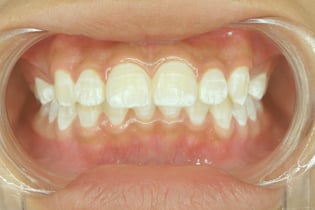
Although you may take excellent care of your teeth by brushing them twice a day, flossing, and getting regular dental checkups, white spots may still develop on your teeth. There are numerous reasons for white spots to appear, including an acidic/sugary diet, poor dental hygiene, tooth trauma, and certain medications. It's important to understand the cause of your white spots to administer the proper treatment and prevent bigger oral health problems, such as decay and tooth loss, from developing in the future.
Causes
1. Demineralization creates white spots of decalcified enamel on teeth due to long-term bacteria buildup in the mouth and consequent mineral loss of the tooth. Thus, white spots that form due to demineralization may indicate tooth decay.
2. Turner's tooth, or enamel hypoplasia is a condition characterized by a defect in the quality and thickness of enamel. Turner's tooth can be caused by multiple factors, such as malnutrition, smoking during pregnancy, preterm birth, or high fever due to illness. People with these white spots may be more prone to sensitivity and decay in the areas of the spots, and; therefore, need to monitor the spots regularly.
3. Fluorosis is common in children and occurs due to excess fluoride exposure. Although there are many benefits of fluoride, too much can cause tooth discoloration. Excess fluoride can come from drinking tap water, swallowing toothpaste, or taking fluoride supplements.
Treatment
If you have white spots due to demineralization, first and foremost, the treatment would include making improvements to your dental hygiene. Adults and children need to brush their teeth at least twice a day for two minutes at a time, and floss daily. You will also need to see your Walnut Creek dentist for a check-up to determine the cause of your white spots. The dentist can prescribe a fluoride gel to help strengthen your teeth and prevent existing white spots from turning into cavities. If a cavity develops where the white spot or discoloration is present, your dentist will be able to fill the spots with a tooth-colored composite.
If your dentist determines that you have Turner's tooth and your white spots are not causing decay or cavities, then there is no need to treat them. However, if you are feeling self conscious about these spots, treatment such as professional teeth whitening and dental veneers can be used to make the white spots less noticeable.
Effects from fluorosis are usually very mild. To treat fluorosis, you can reduce your fluoride consumption by using the recommended amount of toothpaste and drinking bottled water, instead of from tap. In severe cases, to correct any permanent discoloration, cosmetic dentistry techniques can be utilized (e.g. teeth whitening, veneers, crowns, and other restorations).
Prevention
To prevent demineralization and complications from Turner's tooth, make sure to brush and floss your teeth regularly. After eating and drinking, neutralize the acids in your mouth by drinking and swishing water around in your mouth. Also, avoid grazing or sipping on beverages throughout the day (other than water).
To prevent excess fluoride, monitor the amount of toothpaste your children use. Children should apply no more than a pea size of toothpaste onto the toothbrush. Supervise your children when they brush their teeth, and make sure your child spits out the toothpaste and doesn't swallow it.
At our Walnut Creek, CA dental practice we can examine your teeth, determine the cause of your tooth discoloration, and offer a treatment plan. Call our Walnut Creek office at (925) 705-7093 to schedule your dental check up or request an appointment online.


.jpg?width=712&name=GSD-Scalloped-Tongue-Causes-and-Treatment-Blog-01.27.2210.21.21%20(1).jpg)











.jpeg?width=425&name=GSD-How-to-Combat-Dental-Plaque-07.22.24-2%20(1).jpeg)



